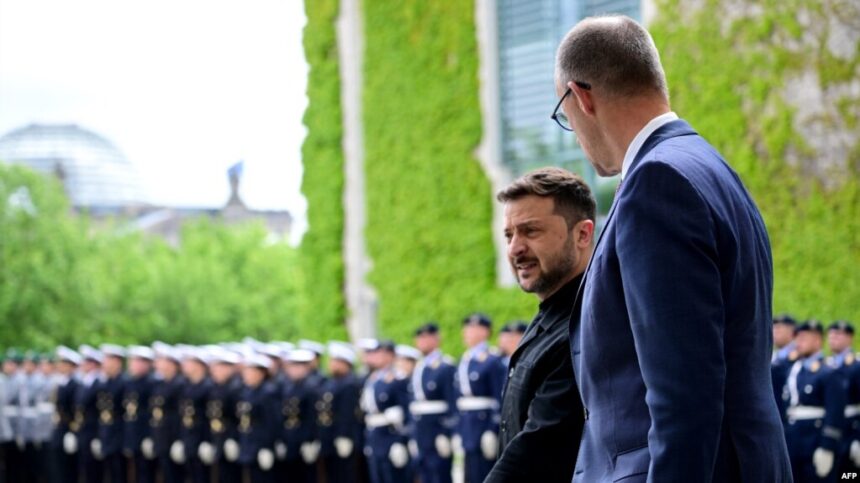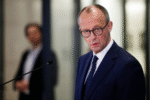Ukrainian President Volodymyr Zelensky has stated that a just and lasting peace in Europe can only be achieved after Russian President Vladimir Putin is no longer in power. This declaration came during his visit to Berlin on May 28, 2025, where he met with German Chancellor Friedrich Merz to strengthen military cooperation between Ukraine and Germany.
During the joint press conference, Zelensky emphasized the need for increased international pressure on Russia, criticizing the global community for what he sees as a lack of full commitment to ending the war.
“There isn’t enough pressure,” Zelensky told Germany’s RTL, “The United States is involved, but not 100 percent. Other countries like China and those in the Global South remain passive.”
He pointed out that Russia is deliberately stalling diplomatic efforts toward a ceasefire and that Putin’s nightly drone attacks on Ukrainian cities show clear disregard for peace.
“We will have a just peace—likely only after Putin,” he said.
German Chancellor Merz supported Zelensky’s remarks, saying that the recent drone strikes on Kyiv and other regions are “a slap in the face to everyone working toward peace.” He announced a new defense cooperation initiative that will allow Ukraine to jointly manufacture long-range missile systems with Germany.
“Ukraine will be able to fully defend itself, including against military targets outside its territory,” Merz stated.
Germany is currently the second-largest military aid donor to Ukraine after the U.S. However, some of the more advanced weapons systems have been restricted in use due to concerns about provoking Russia and potentially escalating the war further.
Merz hinted at the possibility of sending German-made Taurus cruise missiles to Ukraine—a long-standing request from Zelensky—but noted that training Ukrainian forces to use them would take months.
Russia Responds with Hostility
Russian Foreign Minister Sergey Lavrov criticized the German-Ukrainian partnership, claiming Germany is “walking the same path as it did in the past century,” implying historical aggression.
German Foreign Minister Johann Wadephul pushed back, asserting that Russia has no moral authority to dictate the terms of military support for Ukraine.
“Russia is not provoking a war—it is waging one every day in violation of international law,” said Wadephul in a CNN interview on May 28.
“We will stand with Ukraine as long as necessary to defend its territory, its people, and international law.”
He concluded by stressing that European security will not be possible with Russia, but only against it, a view now widely accepted among Germany’s Eastern European allies.







